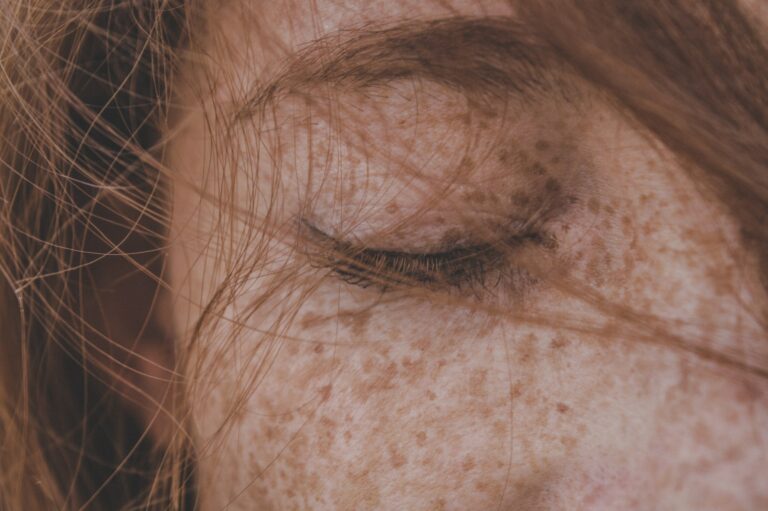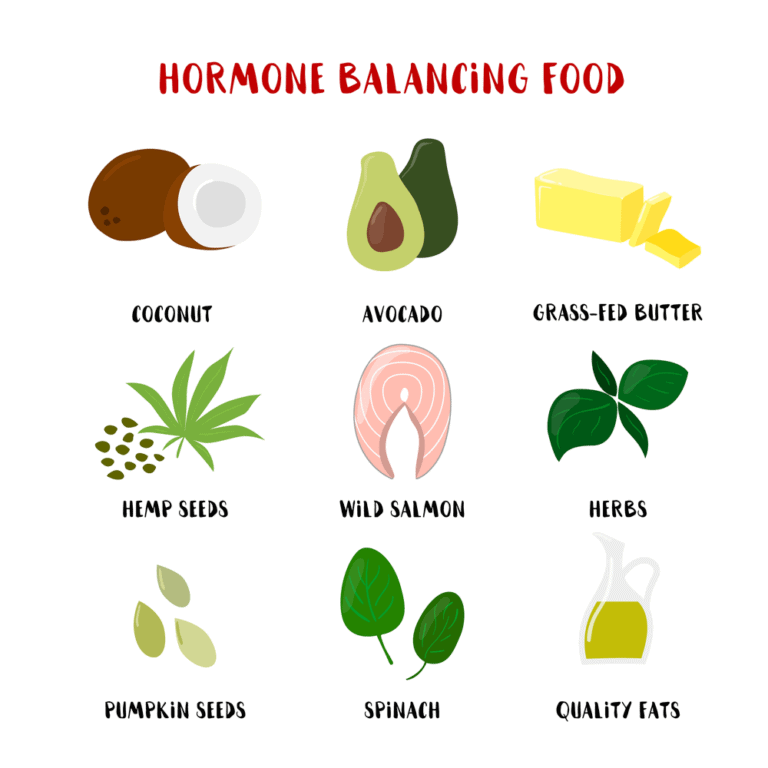How To Balance Hormones? All You Need To Know About Hormonal Health

How to balance hormones? In this blog post, we will talk about natural ways to help balance out your body’s hormones and what things to do or avoid doing that can influence your hormonal cycles. Here is an overview of the topics:
- What do hormones do?
- Natural changes in your body’s hormones
- Signs of unbalanced hormones
- Causes of unbalanced hormones
- How to balance hormones?
- Nutritious diet
- Exercise
- Gut health
- Stress reduction techniques
- Sleep
- Clean products
- Regular check-ups
How to balance hormones? Let's Start With the Role Hormones Play In Your Body
Hormones affect our health in all sorts of ways from physical to mental. They are our body’s way of communicating with the rest of our body. Hormones send signals throughout our bloodstream to our organs and tissues. The body’s endocrine system controls multiple glands throughout the body which make and release the hormones. These hormones have a multitude of purposes.
For instance, they affect our growth and development, metabolism, sexual and reproductive functions. Also, our mood. Although it is common for our body to experience hormonal fluctuations during puberty, pregnancy, and menopause, even a small change in our hormones can manifest into a larger issue.
Natural changes in your body’s hormones
There are three stages of life where women experience hormonal changes. First puberty, from around the ages of 10-14, girls begin physical changes such as breast development and menstruation. This happens because of an influx in sex hormones. Estrogen in particular plays a huge role in women’s reproductive development. It works to maintain our reproductive system by stimulating growth of egg follicles and building the lining of our uterus. Estrogen also plays a role in other cycles of our bodies, such as cognitive, bone, and cardiovascular health.
The second stage of hormonal changes in women occurs during pregnancy. This is when a hormone called human chorionic gonadotropin is made. It is uniquely created during pregnancy and is only found in the placenta. In addition, the body produces human placental lactogen which allows the fetus to get proper nutrition. Also, it stimulates milk glands for breastfeeding. Additionally, estrogen and progesterone levels increase in order to take care of a fetus. Dry skin during pregnancy, postpartum hair loss, and other symptoms are related to the hormonal changes.
Finally, menopause occurs between the ages of 45 to 55. What are the 34 symptoms of menopause? As the body ages our hormonal levels decline, ovaries no longer produce eggs, and periods cease. These changes in hormonal levels cause many side effects. Some of them are hot flashes, night sweats, mood changes. Furthermore, you can experience difficulty sleeping, hair loss, and dry skin. Other than taking care of yourself by eating well and exercising, there is HRT (hormone replacement therapy) that works to help relieve menopausal issues

How to balance hormones? Signs of unbalanced hormones
Our hormones play all sorts of different roles in our body’s function. Therefore, it is important to be aware of any hormonal changes. Symptoms of unbalanced hormones manifest in problems like unexplained weight loss or gain, fatigue, high cholesterol levels, and mood swings. Weight loss and gain are directly affected by our metabolism which is the process our body does in converting food into energy. Such fluctuations can be explained by a wide range of hormones.
How to balance hormones? Symptoms really depend on what hormones are imbalanced. For many women imbalances in certain reproductive hormones commonly cause face and body acne along with irregular menstrual cycles. In extreme cases, it can lead to infertility. As the leading cause of infertility, any hormonal irregularity can create difficulties when trying to get pregnant. Therefore, being cautious of hormone fluctuations is important. There are also many natural fertility boosters that can help when anf if trying to have a baby.
Although estrogen is referred to as the ‘female’ hormone, men need estrogen to produce sperm. However, at high levels it can slow down sperm production and affect fertility. Certain health conditions can increase estrogen levels, such as stress, tumor growth, and liver disease. Symptoms include reduced sex drive, feeling of exhaustion, losing or thinning hair, shrinking muscle mass, and crepey skin.
Causes of hormonal imbalances
Hormonal imbalances are also caused by medications. Certain birth controls contain estrogen and progestin hormones to help stabilize period issues. These successfully stop the body from ovulating. However, hormonal birth controls come with other side effects like depression and mood swings. Cancer treatment can also put a strain on our body’s hormones levels. Even eating disorders and unhealthy eating can influence the body’s growth hormones. Additionally, hormonal imbalances happen during and right after pregnancy, when issues such as postpartum hair loss, and mood changes happen due to hormonal fluctuations.
Another cause, that’s rarely talked about, is chemicals in skincare and beauty products. Some products contain endocrine disruptors that can infiltrate our bloodstream. This can mess with our natural hormone levels. Therefore, it is always good to be cautious, especially when and if trying for a baby. Make sure you use clean skincare. Additionally, always try to use organic natural ingredients made without any harmful synthetics.
How to balance hormones naturally?
Before taking any hormonal therapy, try to balance your hormones naturally. Some of the recommended things are healthy diet, use of clean, organic skincare products, and taking care of your gut health. We’ll elaborate on each.
How to balance hormones - Nutritious diet
Nutritious, healthy diet can balance out our hormones. Try incorporating protein rich foods like eggs, chicken, lentils, fish, and quinoa into your diet. Doctors recommend getting around 30 grams of protein per day. So don’t forget to make a chicken or fish dinner every once in a while.
It is also important to buy organically grown food. A lot of vegetables and fruits are sprayed down with pesticides. Pesticides are used to eliminate pests from eating the harvest. Any of these toxins can throw off our hormones. Pesticides have been found to alter the function of hormone receptors. Any brief exposure can cause long term effects on our reproductive health. Therefore, it is best, especially while pregnant, to avoid those extra toxins.
Another recommendation would be to reduce our sugar consumption. Not all sugars are labeled sugar in the ingredients. Keep a look out for fructose, corn syrup, and glucose on the nutrition label. Most beverages contain astronomical amounts of fructose corn syrup. Try to avoid drinking soda, juice, sport, and energy drinks.
Having foods high in fiber can also do wonders for hormonal balance. Foods like beans, lentils, broccoli, whole grains, avocados, and chickpeas are great sources of fiber. A high-fiber diet helps lower cholesterol. Also, it helps us keep a healthy weight.

Clean skincare and personal care products
The types of products that you use can contain dangerous chemicals. Many skincare and cosmetic products absorb into the skin and enter our bloodstream. Some toxins can cause hormonal imbalances, disrupting our bodies’ reproductive and developmental systems. In extreme cases such exposure could lead to miscarriages, diabetes, and even cancer.
Everyone should use non-toxic, vegan, and safe skincare. Especially for pregnant and breastfeeding mothers caring for young children, look for products that don’t contain toxins. For instance, Plant Mother’s Vitamin C serum is 100% natural. Used for boosting collagen and reducing sun damage, its waterless formula does not require chemicals or preservatives.
Plant Mother also has a 100% plant-based retinol serum. This serum is beneficial for stimulating collagen and speeding cell growth. It is loved by young moms because this serum is healthy, safe, and made of plants. It contains bakuchiol vs retinol that is often avoided in pregnancy due to its toxicity.
How to balance hormones - Gut health
Even our gut health can influence hormone levels in the body. Our gut has its very own microbiome with 300 to 500 different types of bacteria. It consists of microbes that are extremely helpful in breaking down food. Therefore, our gut health also plays a big role in estrogen regulation. If you are having uneasy bowel movements make sure to incorporate probiotic-rich foods.
Yogurt, miso, kefir, sauerkraut, and kombucha are rich in probiotics that help maintain a healthier gut. Ginger is extremely beneficial for people with indigestion. It can help you when you have an upset stomach or are experiencing constipation.
Stress reduction techniques
The most common cause of imbalanced hormones is stress. Stress can trigger our body’s fight or flight reflex. That’s why it starts releasing adrenaline and cortisol. Chronic stress can increase risks of anxiety, depression, and cause problems sleeping. Work and family issues cause tons of pressure on the body. Therefore, it is especially important to practice stress reduction techniques.
Meditation, yoga, chakra stones, and listening to relaxing music are great ways to allow time for the body to de-stress. It is so important to make time for it every day. Even if it’s only for 10-15 minutes. Clearing the mind can do so much for the body mentally and physically. So, after an extremely hard day don’t forget to run a warm bath with essential oils, listen to music, and forget everything else for a bit.

How to balance hormones - Exercise
Daily exercising can also improve our hormonal health. Exercising increases hormone receptor sensitivity. Workouts with squats, bench presses, and pushups help aid muscle building. Any form of physical activity increases the production of our body’s endorphins. Endorphins are feel-good chemicals, basically our natural painkillers.
Exercising has also been proven to increase our happy hormones, dopamine and serotonin. These neurotransmitters are associated with feelings of happiness, productivity, and calmness. A healthy lifestyle significantly benefits a healthier mind.
How to balance hormones - Sleep
Poor sleep can also impact our hormone levels. Hormones rise and fall throughout the day in response to our quality of sleep. Sleeping gives our body time to relax and heal. Being anxious at night causes our cortisol levels to rise making it difficult or even impossible to fall asleep.
Not having a good night’s sleep can make starting the day even more difficult. It is best to avoid using any type of blue light like phones or computer screens before bed. The light can actually confuse our body and disrupt our sleep cycle. Another almost self-explanatory tip would be to not have caffeine after 3pm. Getting a good night’s sleep is the best way to give back to ourselves. Many find it helpful to listen to sounds of the ocean or rain to soothe them to sleep.
Regular check-ups
Our mothers were right when they told us to get regular checkups with our doctors. Hormone levels can easily be tested in blood work. If there are any issues in bloodwork, a doctor can easily give proper treatment. If you feel you have experienced any of the symptoms above, talk to a doctor. Always check with a medical professional before taking any supplements or hormonal medications.
Medical Disclaimer
This content is for informational and educational purposes only. It is not intended to provide medical advice or to take the place of such advice or treatment from a personal physician. All readers of this content are advised to consult their doctors or qualified health professionals regarding specific health questions. The publisher of this content does not take responsibility for possible health consequences of any person or persons reading or following the information in this educational content. All viewers of this content, especially those taking prescription or over-the-counter medications, should consult their physicians before beginning any nutrition, supplement, skincare product, or lifestyle program.
References:
- https://cfpub.epa.gov/si/si_public_record_report.cfm?Lab=NHEERL&dirEntryId=212273
- https://www.ncbi.nlm.nih.gov/pmc/articles/PMC1524969/
- https://www.endocrine.org/patient-engagement/endocrine-library/hormones-and-endocrine-function
- https://www.medicalnewstoday.com/articles/277177
- https://www.hopkinsmedicine.org/health/conditions-and-diseases/staying-healthy-during-pregnancy/hormones-during-pregnancy
